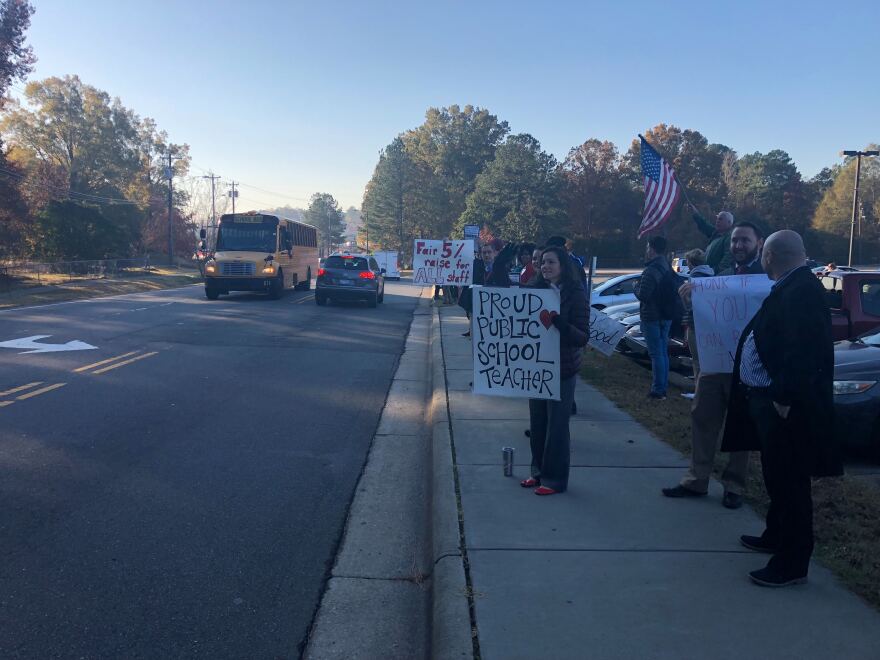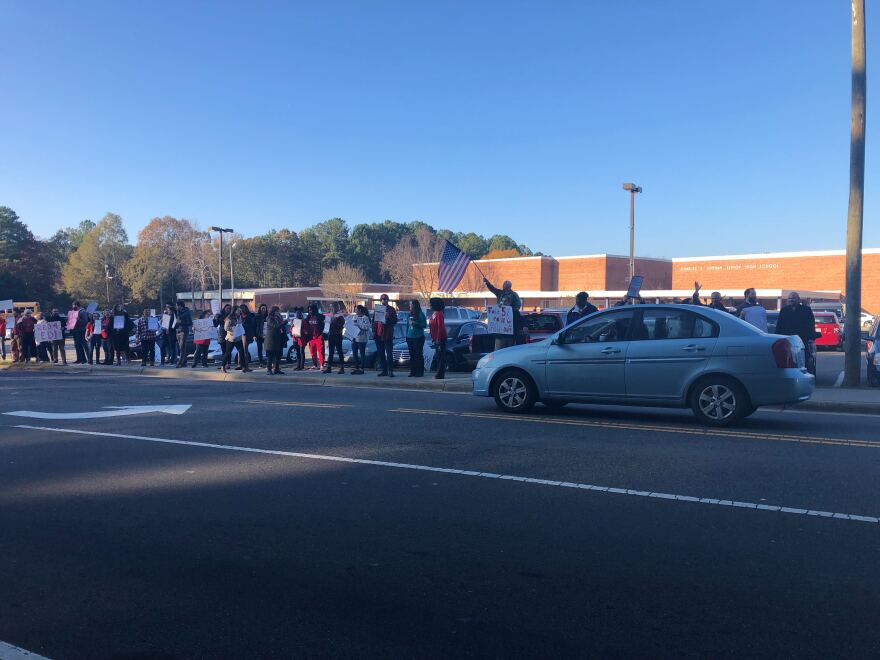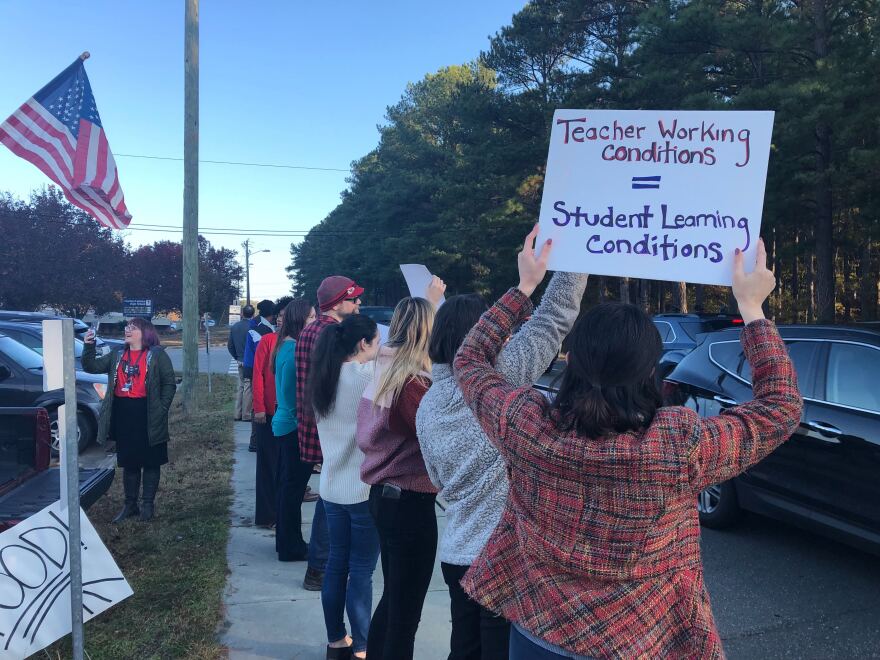Teachers in North Carolina are going without a pay raise until at least next year. That’s after the General Assembly and Governor couldn’t come to an agreement on a budget this past session, or even a so-called mini-budget, focused on teacher pay.
The Republican-led General Assembly did send a stand-alone teacher pay bill to the Governor. But Cooper called those raises "paltry," and vetoed the bill. The Legislature’s proposed raise would have been 3.9 percent over two years. The Governor wanted raises around nine percent.
After Cooper vetoed the bill, the General Assembly declined to negotiate. The next week, it adjourned without passing a budget.

Shortly after lawmakers left Raleigh, several dozen teachers at Jordan High School in Durham gathered along Garrett Road before class to protest. Teachers were in good spirits as they held signs, chanted and drew the attention of parents dropping their kids off or driving past the school.
It was one of several teacher protests held across the state. Others have occured in Charlotte Mecklenburg, Buncombe County and Asheville City Schools.
"I’d say the strike is probably coming," said Dominique Beaudry, a social studies teacher at Jordan High School. "It’s just a matter of time."
Beaudry is aware that teachers in North Carolina are legally prohibited from striking. She blames politics for the stalemate.
"So I would say the politicization of teachers and schools is probably what is to blame," Beaudry said. "As people use school budgets and the state budgets as political fodder - that’s exactly why we don’t have any of these things."

Some teachers, like Jonathan Plesser, are more specific. He blames the Legislature directly.
"I’m out here rallying for the General Assembly to do their job, pass a budget, and fund our schools," Plesser said.
But other teachers think there’s enough blame to go around. Andrew Somers stood in the back of a pickup truck holding and waving an American flag during the walk-out.
"When Democrats were in power, teachers got screwed - Republicans are in power, teachers get screwed," Somers said. "People need to be aware of that, it’s a culture of taking teachers and public schools for granted: they’ve got to stop. I’ve never demonstrated before, I’m here now."
The North Carolina Association of Educators is the largest teacher advocacy group in the state. NCAE leaders say they support Cooper’s veto, and want the Legislature to negotiate a higher pay raise.

"I would say Phil Berger specifically bears responsibility," said Todd Warren, the district leader of the NCAE in Guilford County, referring to tthe Republican Senate President Pro Tem.
But Warren also says he thinks it’s the Governor’s turn to step up, and call for a special session to get this budget passed.
"But even if he does that, then the legislators have to come back and negotiate a budget in good faith," Warren said. "We’re still holding out for that opportunity. They say they’re going to return in January, I think that’s too long."
There are also other parts of the state’s education costs that aren’t funded because there’s no budget. Among them: construction projects, curriculum changes and expanding the Teaching Fellows program.








